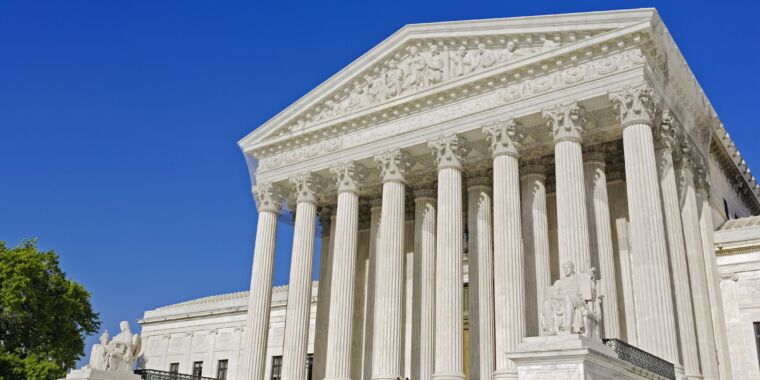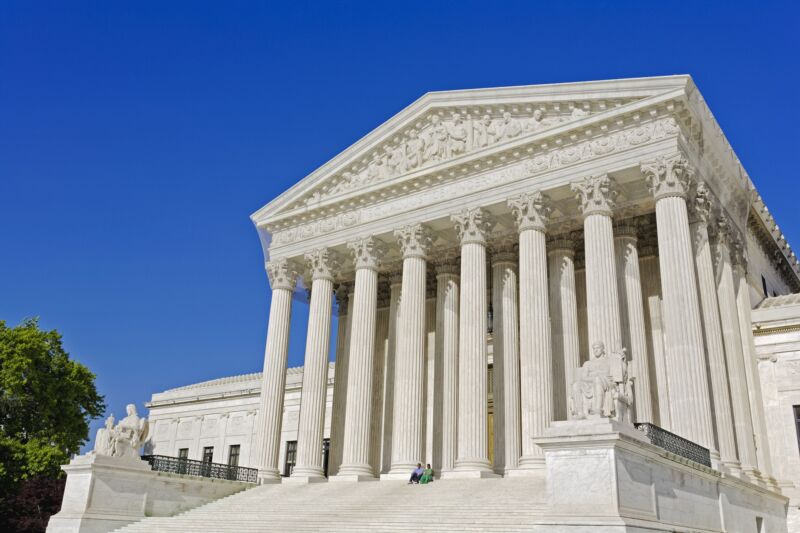Supreme Court may overturn precedent governing climate regulations


Getty Images | Rudy Sulgan
The Supreme Court on Wednesday heard arguments for overturning the so-called Chevron doctrine, one of the most important principles guiding federal regulation for the past 40 years.
The doctrine, named for a 1984 court case involving Environmental Protection Agency air pollution rules, has been high on the agenda of right-wing groups for years. It holds that when the meaning of a law is disputed, the federal agency’s interpretation should be given deference as long as it is reasonable. Environmental groups fear that overturning the precedent will make it easier for courts to block new pollution regulations, especially those addressing climate change.
The cases heard on Wednesday, Loper Bright Enterprises v. Raimondo, and Relentless, Inc. v. Department of Commerce, take on rules put into place in 2020 that require industry-funded federal observers aboard vessels in the northern Atlantic fishing for herring.
The small school fish are key to the northern Atlantic’s food web and fishing economy. The federal rules to monitor and prevent overfishing of Atlantic herring have been bolstered in recent years, in part to address the strain on the fishery due to warming waters.
Paul Clement, a titan among conservative appellate litigators, and lawyers from the Cause of Action Institute, one of the nonprofit groups in the large libertarian advocacy network built by petrochemical billionaire Charles Koch, portrayed the fight over the Chevron doctrine in this case as a David vs. Goliath battle.
“This case well illustrates the real-world costs of Chevron, which do not fall exclusively on the Chevrons of the world, but injure small businesses and individuals,” Clement told the court. “For my clients, having to carry federal observers on board is a burden, but having to pay their salaries is a crippling blow.”
In fact, as the federal government noted in its briefs, the National Oceanic and Atmospheric Administration was able to reimburse the fishing operations for 100 percent of monitoring costs in the two years since the rules went into effect, an amount totaling about $30,000. But such details did not come up in the arguments before the high court, nor were they likely to; the justices decided last year to limit their consideration of the cases to the sole question of whether the Chevron precedent should be limited or overturned.
Potential shock to the legal system
Chevron is probably the most important, and certainly the most-cited precedent, in all of administrative law, according to scholars on both sides of this dispute. The Biden administration’s chief litigator before the Supreme Court, Solicitor General Elizabeth Prelogar, argued that Chevron should be upheld and predicted grave consequences if it is overturned.
There are “thousands of decisions that could stand to be displaced and create chaos if Chevron is overruled,” Prelogar told the court. She said it would cause “an unwarranted shock to the legal system.”


